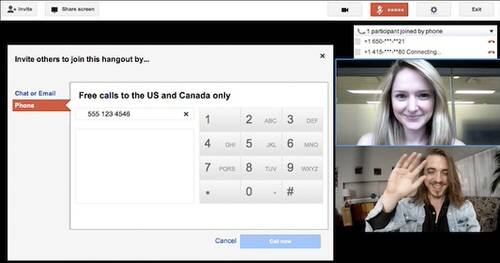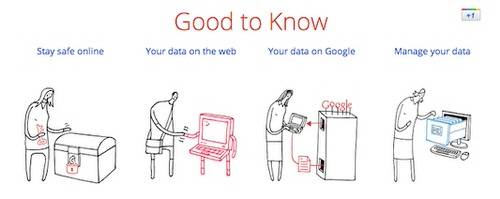Google’s having a down moment in the press. It can’t catch a break. Every public, top-level decision it’s made recently is either the end of “Don’t Be Evil” or impossibly optimistic. After all, “Giant Company Falls From Grace” is the kind of headline industry reporters dream of writing, so we pounce on any scrap of evidence.

But lord knows tech news is an echo chamber. A successful meme like “Google sucks” tends to amplify. It’s easy to laugh at blustery executive statements and paint a whole picture of Google’s decline. But, surprise surprise, things are more complicated than what you read on the blogs.
It’s Complicated
Yes, unambiguous failures of Google products have come to light recently. There’s no excuse for Google’s mobile payments to be insecure. Score one against Google. It has also come to light in the last day or so that Google does sneaky things with Apple’s mobile Safari browser to track users’ browsing habits. Does that mean Google is evil, period? Or is there perhaps more to the story? What about every other technology company involved here?

Online privacy is a generally sad state of affairs. Is Google all-the-way evil for exploiting mobile Safari like this, even though its users can delete their browsing histories? Can Facebook users delete their tracking history, which Bing uses for social search? (No.)

Search, plus Your World
Other Google products have changed recently, and our reactions are matters of opinion. I’m just glad I vented my Google+ spleen when its integration into the rest of Google was still mostly hypothetical, because what eventually shipped was not that bad. You might even like it if you try it for a few months before you blog about it.
Google iterates constantly in response to huge, statistically significant amounts of data from its millions of users. That’s why, for example, it hasn’t settled on a top nav bar yet. It might be temporarily annoying to users and provide temporary blog fodder, but Google’s public beta testing gives it statistical confidence about its product decisions. The opinions of bloggers aside, the behavior of millions of users doesn’t lie.

Search, plus Your World is no different. It may be propelled by business imperatives, but as Google Search lead designer Jon Wiley told me yesterday, the design team’s motto is “don’t break search.” If SPYW breaks search for its users, Google will change it. I don’t much like it myself yet, so I just turn it off. “We’re at the very beginning,” Wiley told me, “and how that experience is going to grow and change is kind of an unknown, because it really is dependent upon how people use it.”
As I said on Twitter at the time:
When I talked to Wiley yesterday (more from him on RWW soon), I asked him if “people have chilled out” about Search, plus Your World since it launched. But even as I asked it, I realized the question was smeared with blog-juice. “That implies that they were not chill to begin with,” Wiley pointed out, and that’s true. I was biased by the blogosphere into thinking that people hate this thing.
If the numbers didn’t support it, even if Wiley hadn’t been straight with me about it, I would have heard it in his voice. But “Search, plus Your World is working as intended,” he said. That sounds opaque. But Google’s intention is to enable hundreds of millions of users to find what they’re looking for. If that wasn’t working as intended, this product would change.
Google Is People, Not Just Data
But more can be said for Google products right now than that the data support the decisions. Some of Google’s current projects are completely irrational, and yet they’re wonderful. Have you tried a Google+ Hangout? You should. Lots of Web products in 2011 liked to call themselves “social.” How many of them really were? Lots of people in 2011 liked to say that Google doesn’t “get” social. Is that true?
No, Google+ will not replace Facebook. Is Facebook your standard for what “social” means now? “Like” buttons and virtual farms? Google+ has those, too, and that’s a bummer. But Google+ also lets you hang out, face to face, with anyone with a computer or smartphone. Even people with dumbphones can join in by voice. Which is more social: being the Foursquare mayor of your neighborhood Starbucks or talking to people?

Yep. It’s ironic that I’m praising hangouts. I’ve had three straight hangouts go horribly wrong due to technical glitches. The conversations themselves were fantastic, but Google lost them afterwards. Google+ has given +ReadWriteWeb Hangouts On Air capability, and no, it hasn’t worked very well so far.
You know what else Google has given me, just another of its users, other than the ability to broadcast high-quality, 10-way video conversations to everyone in the world for free? Tech support for Hangouts On Air in the middle of the night. In-person training on how to use it. Why the hell are they doing this? Isn’t this ridiculously expensive in both human and machine terms? What does Google get out of making a product like this?
You know, other than a hangout with the President of the United States?
That’s a pretty good question. Maybe Googlers just think it’s amazing.

Just So We’re Clear
You might notice I haven’t mentioned Android. It is my opinion that that product isn’t serving its users well, which is why I am not one of them. But I haven’t mentioned Chrome either, and I think that’s the best browser in the world. The point is, Google is a big company. It’s working on lots of things.
Some are bad. Some are dumb. Some are wrong. Some are the best tools on the entire Web. Some are insane, totally irrational, like free face-to-face hangouts for everyone. We should never fail to hold Google accountable, but don’t fault it for trying, either.

















